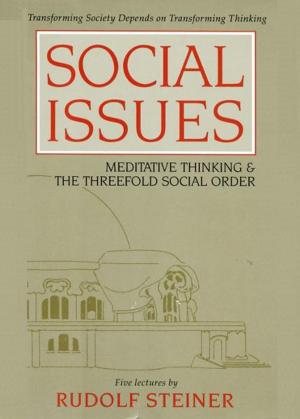A Social Algorithm
Nonfiction, Science & Nature, Science, Other Sciences, Philosophy & Social Aspects| Author: | Michael Le Page | ISBN: | 9780987360007 |
| Publisher: | Michael Le Page | Publication: | January 1, 2001 |
| Imprint: | Language: | English |
| Author: | Michael Le Page |
| ISBN: | 9780987360007 |
| Publisher: | Michael Le Page |
| Publication: | January 1, 2001 |
| Imprint: | |
| Language: | English |
Once upon a time, a student of molecular biology became curious about why his ideas should be the way they are. The ideas lived happily ever after. This text started as a collection of thoughts and ideas aimed at achieving personal clarity. It developed into something more ambitious: What if someone could encapsulate their world view so completely that the ideas took on a life of their own? What is it which is special about those collections of ideas which have taken on lives of their own in the past? I think there is very specific set of characteristics that define these collections of ideas above and beyond the idea of a "meme complex" (a set of mutually supportive ideas), in the same way there is a very specific set of characteristics that define life itself as more than a collection of nucleic acids, lipids, proteins and carbohydrates. It is this specific subset of "meme complexes" that I call "social algorithms", and this text has become my attempt to create my very own "social algorithm". Writing it has helped me find clarity: It is my hope that reading it will help other people to find their own clarity.
Once upon a time, a student of molecular biology became curious about why his ideas should be the way they are. The ideas lived happily ever after. This text started as a collection of thoughts and ideas aimed at achieving personal clarity. It developed into something more ambitious: What if someone could encapsulate their world view so completely that the ideas took on a life of their own? What is it which is special about those collections of ideas which have taken on lives of their own in the past? I think there is very specific set of characteristics that define these collections of ideas above and beyond the idea of a "meme complex" (a set of mutually supportive ideas), in the same way there is a very specific set of characteristics that define life itself as more than a collection of nucleic acids, lipids, proteins and carbohydrates. It is this specific subset of "meme complexes" that I call "social algorithms", and this text has become my attempt to create my very own "social algorithm". Writing it has helped me find clarity: It is my hope that reading it will help other people to find their own clarity.















